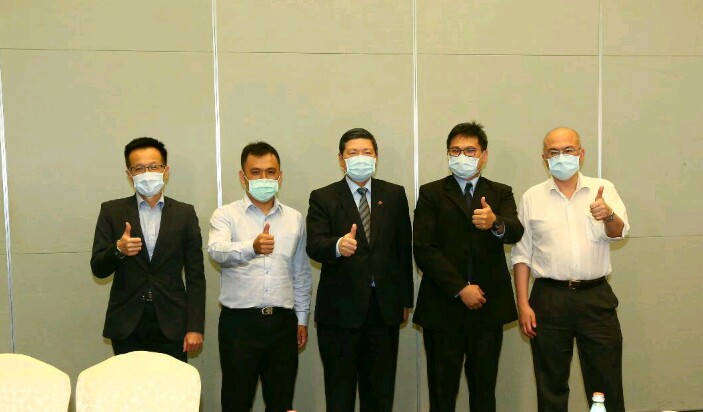The deadly COVID-19 virus has been in existence for just three months but the world is already reeling from various measures to control its spread. These include the closure of borders and strict stay-at-home quarantine for many citizens in countries hit by the deadly virus.
Hospitals have become the epicenter of lockdown areas and medical demand continues to grow exponentially as the pandemic spreads further. Other than patients with chronic diseases who require medical resources regularly, those with symptoms of coughing and fever but not yet declared COVID-19 positive are worried that they’ll be infected if they go to a hospital. Even if hospitals and clinics in Taiwan are close to people’s homes and are easily accessible, many still feel they are very far away.
Thus, “Telemedicine” is poised as the best solution amid this pandemic, according to Walter Yeh, President and CEO of Taiwan External Trade Development Council or TAITRA. “The technology being used in telemedicine/telehealth helps reduce the risk and cost of infection to patients and medical staff alike, and has become the best solution to treating patients with infectious diseases.”
According to a survey by Global Market Insights, the global market value of telemedicine will increase from US$38.3 billion in 2019 to US$130.5 billion in 2025 for a composite average growth rate of 19.2 percent. The pandemic may be causing windows of opportunity all over the world to close, but telemedicine offers a rare window of hope for the whole world. “Taiwan is able to integrate strategic advantages in information, communication, and medical strength and is therefore exclusively equipped with the potential to help develop the global telemedicine industry. Our goal is to combine Artificial Intelligence (AI) with big data in order to improve upon current medical information systems and image analysis.”

In a virtual press conference held recently, Yeh showcased to the media three telehealth solutions: Medimaging Integrated Solution, BIONIME, and Leadtek Research, Inc., who all developed products with the aim of advancing science. The solutions, said Yeh, share three common objectives, such as to reduce COVID-19 risks and medical costs for both patients and medical facilities, expedite a patient’s recovery from illness, and to promote proactive patient self-management.
The telehealth industry includes telehealth management, telehealth nursing and telemedicine. In terms of telehealth management, Leadtek, a Taiwan Excellence enterprise, has created its “amor physical and mental health management platform“ based on a wearable bracelet that can monitor personal data like sleeping habits, fatigue levels, blood circulation, and physical stress index. The comprehensive information it collects enhances knowledge of AI risk prediction, individual health patterns, and allows for personalized suggestions to boost self-health management.
On the other hand, “The Rightest Precision Health Combined Care Circle,” created by Bionime Corporation, collects and analyzes electronic data through digital health service stations and converts it into easily readable information charts. This powerful telecare nursing service provides professional medical hospitals and clinics with ideal solutions for institutional care management as well as follow-up care outside the institutions.
As for telemedicine, the “Horus Scope Digital Handheld Tonometer” developed by Medimaging is available to both physicians and optometrists and aims to facilitate the production of electronic medical records through digital photography or video recording. The image can be transmitted to the physician remotely for diagnosis to reduce the need for one-to-one contact.
Taiwan has been at the forefront of global COVID-19 prevention efforts. Through the full support of the government, transparent information exchange, industrial capability, and the combined effort of medical professionals, Taiwan has been able to showcase its strength in the medical industry. The Taiwan External Trade Development Council will continue to promote all aspects of the medical industry in Taiwan and will hold a “Taiwan International Medical and Healthcare Exhibition” at the Taipei Nangang Exhibition Center, Hall 2 October 15-17. Taiwan Excellence will also lead award-winning businesses to participate in the American Association for Clinical Chemistry and Clinical Laboratory Equipment Exhibition in December, ASEAN Senior Care & Wellness Expo in Malaysia in August, and MEDICA in Germany in November, to assist domestic manufacturers in expanding their business opportunities across the globe.




